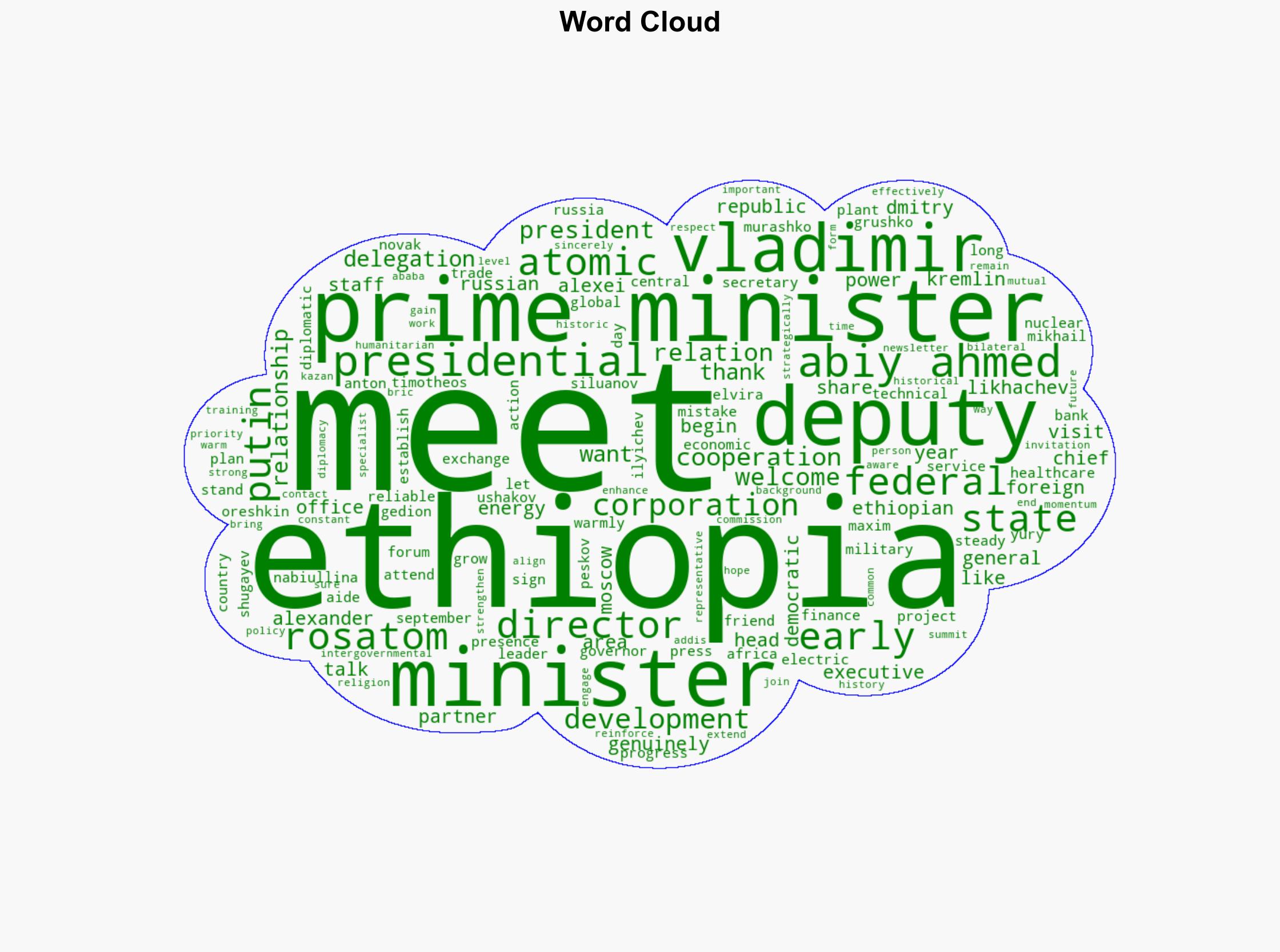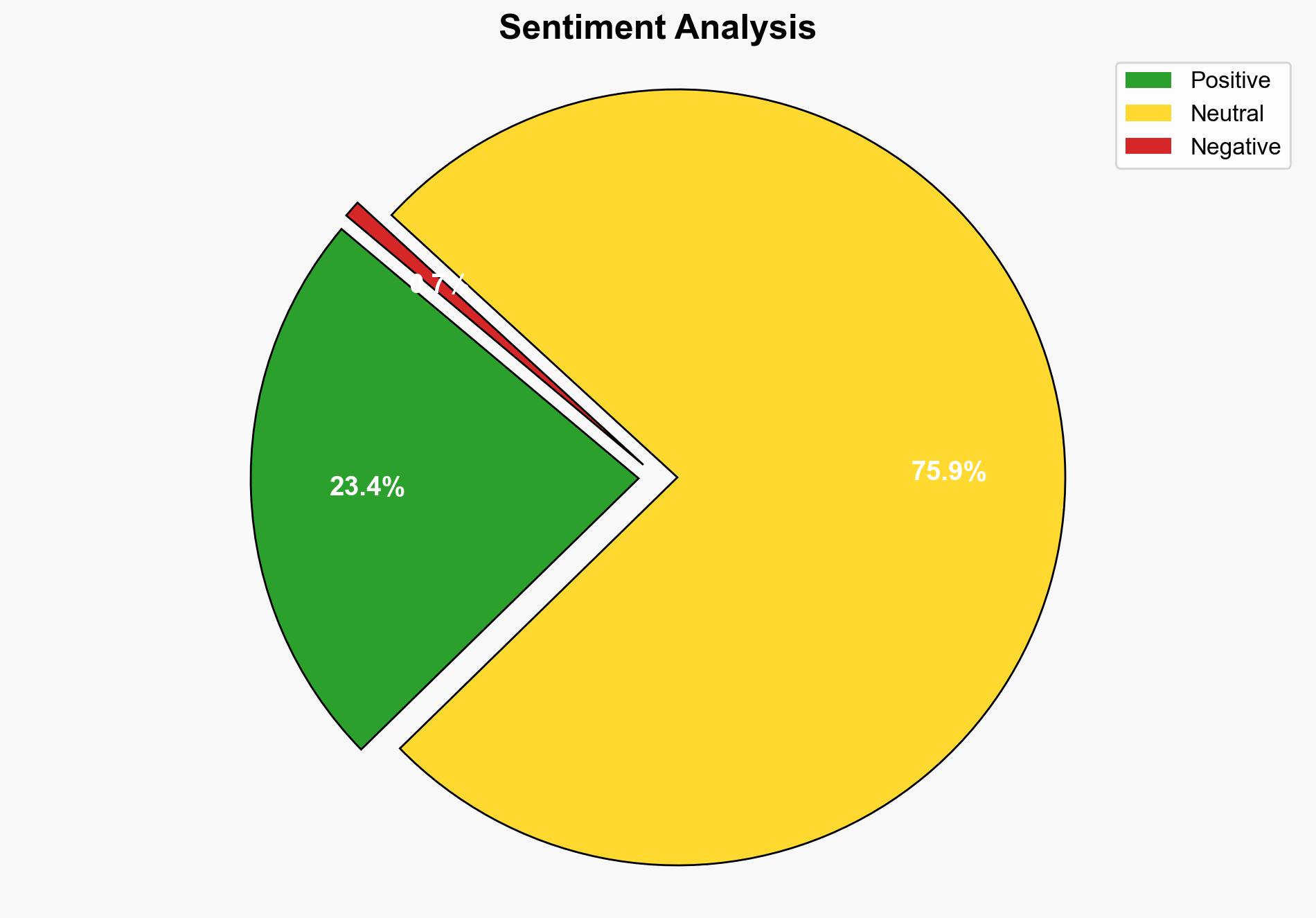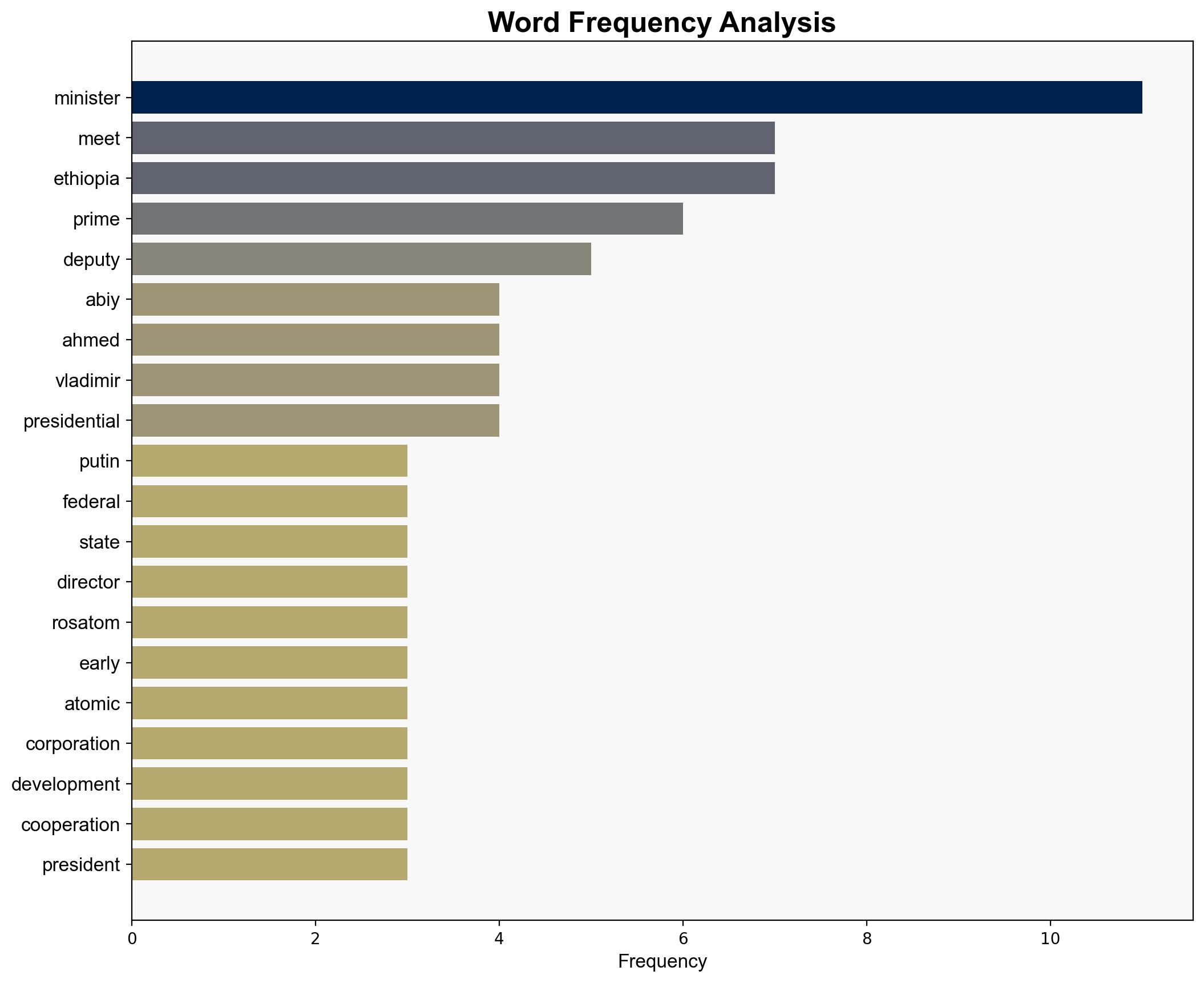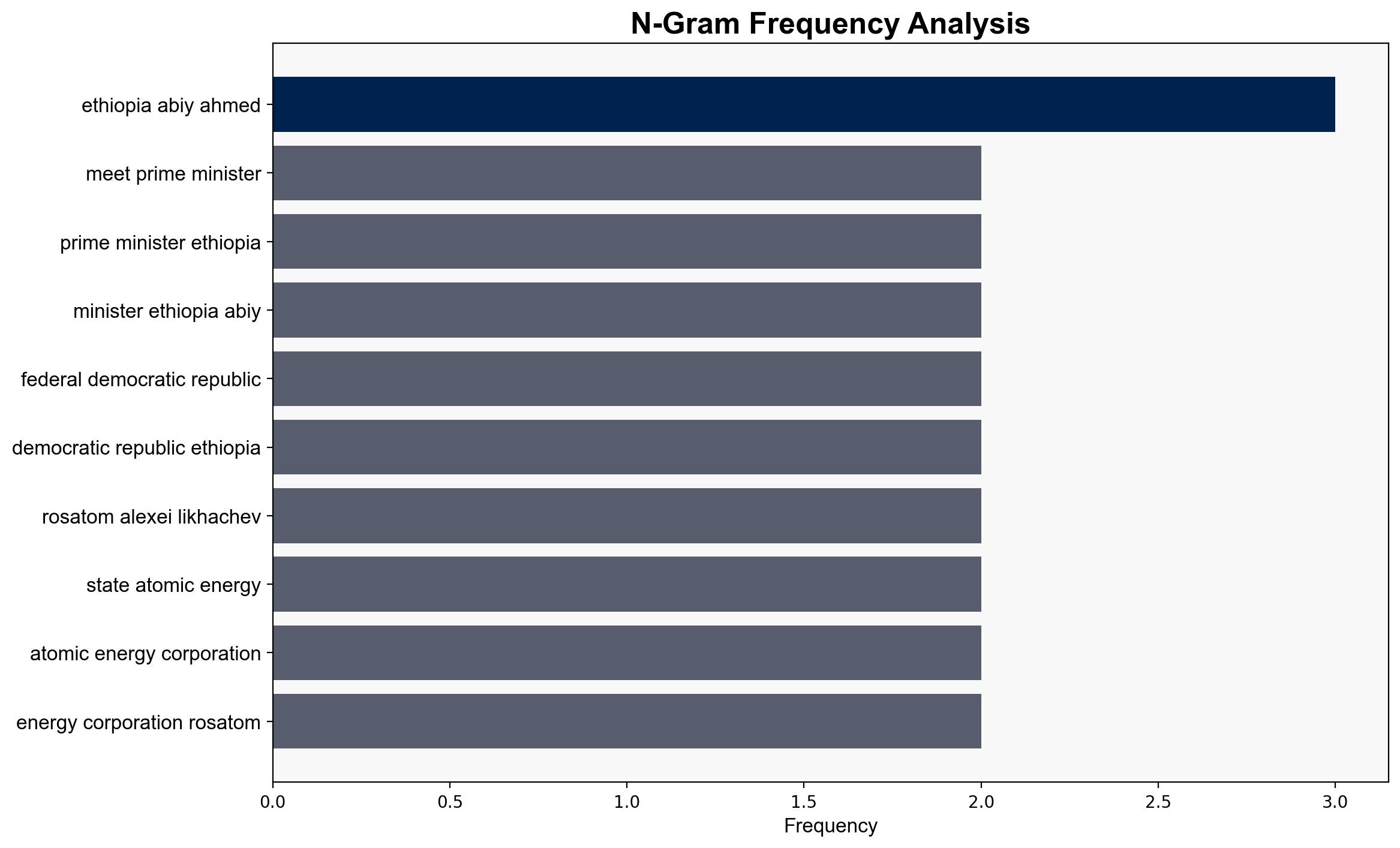Meeting with Prime Minister of Ethiopia Abiy Ahmed – Globalsecurity.org
Published on: 2025-09-29
Intelligence Report: Meeting with Prime Minister of Ethiopia Abiy Ahmed – Globalsecurity.org
1. BLUF (Bottom Line Up Front)
The meeting between Vladimir Putin and Abiy Ahmed, with the involvement of Rosatom, suggests a strategic alignment between Russia and Ethiopia in nuclear energy development. The most supported hypothesis is that this meeting aims to deepen bilateral ties and expand Russia’s influence in Africa through energy cooperation. Confidence level: Moderate. Recommended action: Monitor the implementation of the nuclear power project and assess its geopolitical implications.
2. Competing Hypotheses
1. **Hypothesis 1**: The meeting is primarily focused on strengthening bilateral relations through energy cooperation, with Russia aiming to expand its influence in Africa by supporting Ethiopia’s nuclear energy ambitions.
2. **Hypothesis 2**: The meeting serves as a diplomatic gesture with limited immediate impact, primarily intended to showcase Russia’s interest in African partnerships without significant follow-through on nuclear projects.
3. Key Assumptions and Red Flags
– **Assumptions**: It is assumed that both parties have the technical and financial capacity to pursue a nuclear energy project. There is an assumption that Ethiopia’s interest in nuclear energy is genuine and not merely diplomatic posturing.
– **Red Flags**: The presence of high-level Russian officials suggests significant interest, but the absence of detailed project timelines or financial commitments raises questions about the project’s feasibility. Potential cognitive bias includes overestimating Russia’s capacity to deliver on nuclear projects given its current geopolitical challenges.
4. Implications and Strategic Risks
– **Economic**: Successful implementation could boost Ethiopia’s energy capacity, but failure could strain resources and diplomatic relations.
– **Geopolitical**: Russia’s involvement in Ethiopia’s energy sector could shift regional power dynamics, potentially affecting relations with Western nations.
– **Cyber and Security**: Increased collaboration may expose Ethiopia to cybersecurity threats, particularly if sensitive nuclear technology is involved.
– **Psychological**: The partnership may enhance Ethiopia’s regional standing, but could also lead to increased scrutiny and pressure from international actors.
5. Recommendations and Outlook
- Monitor the progress of the nuclear project for signs of genuine commitment versus diplomatic posturing.
- Engage with Ethiopian and Russian counterparts to gather intelligence on project specifics and timelines.
- Scenario Projections:
- Best Case: Successful energy cooperation enhances Ethiopia’s energy capacity and strengthens bilateral ties.
- Worst Case: Project stalls, leading to wasted resources and diplomatic tensions.
- Most Likely: Initial progress with potential delays due to technical and financial challenges.
6. Key Individuals and Entities
– Vladimir Putin
– Abiy Ahmed
– Alexei Likhachev
– Gedion Timotheos
– Dmitry Peskov
– Yury Ushakov
7. Thematic Tags
national security threats, energy cooperation, geopolitical strategy, Africa-Russia relations





